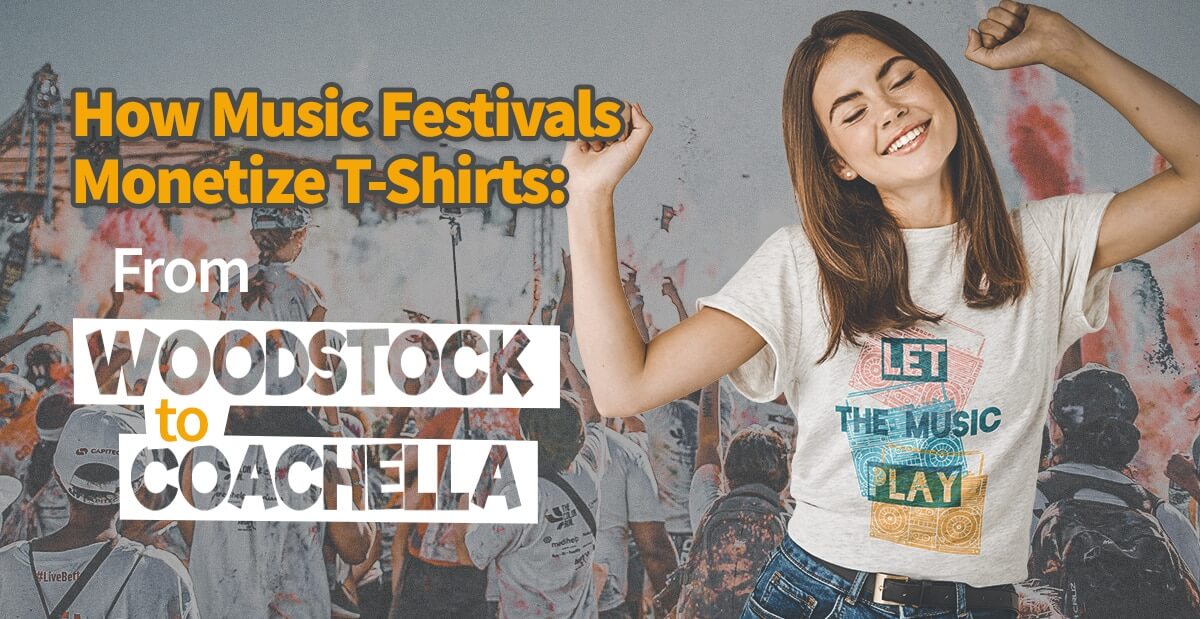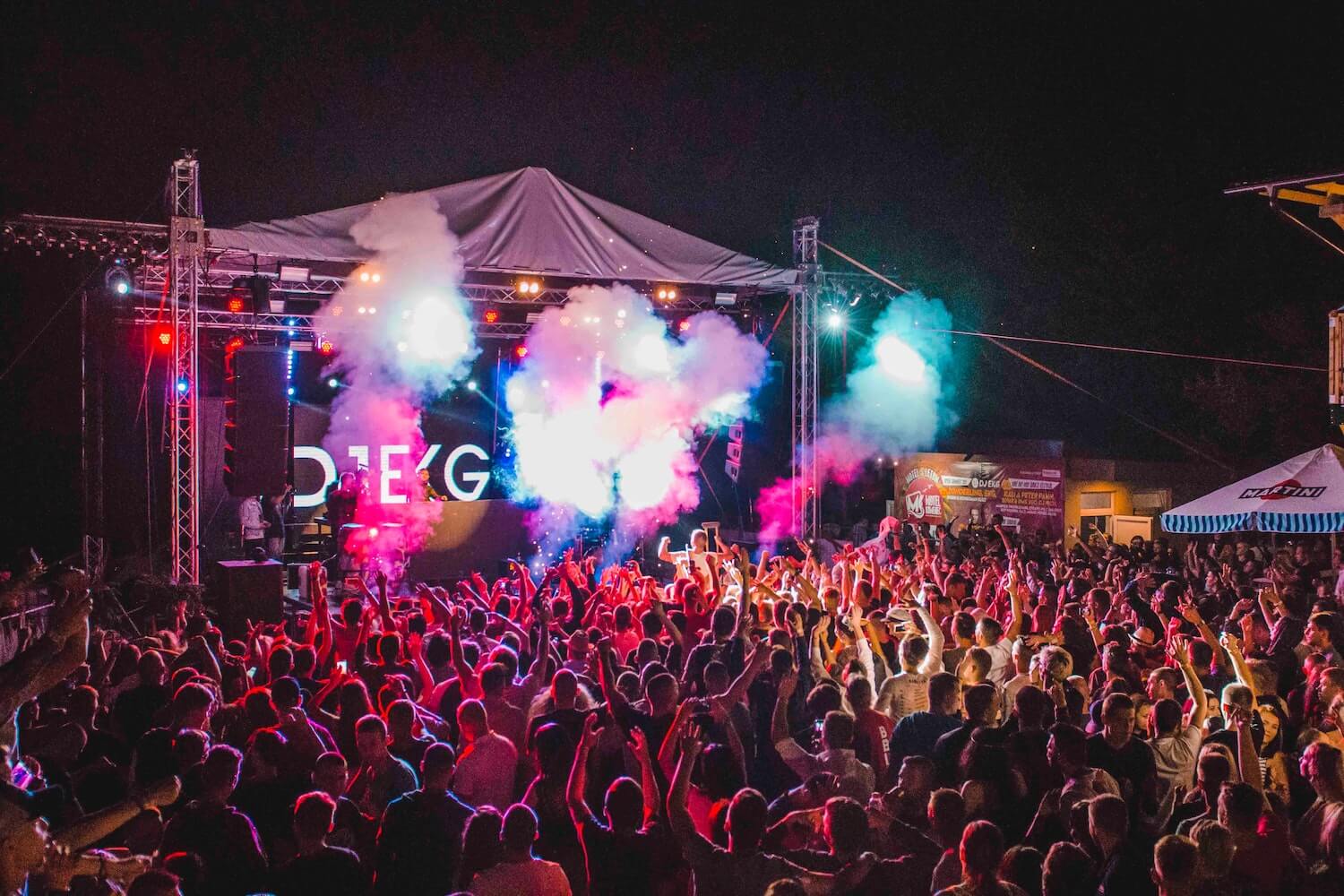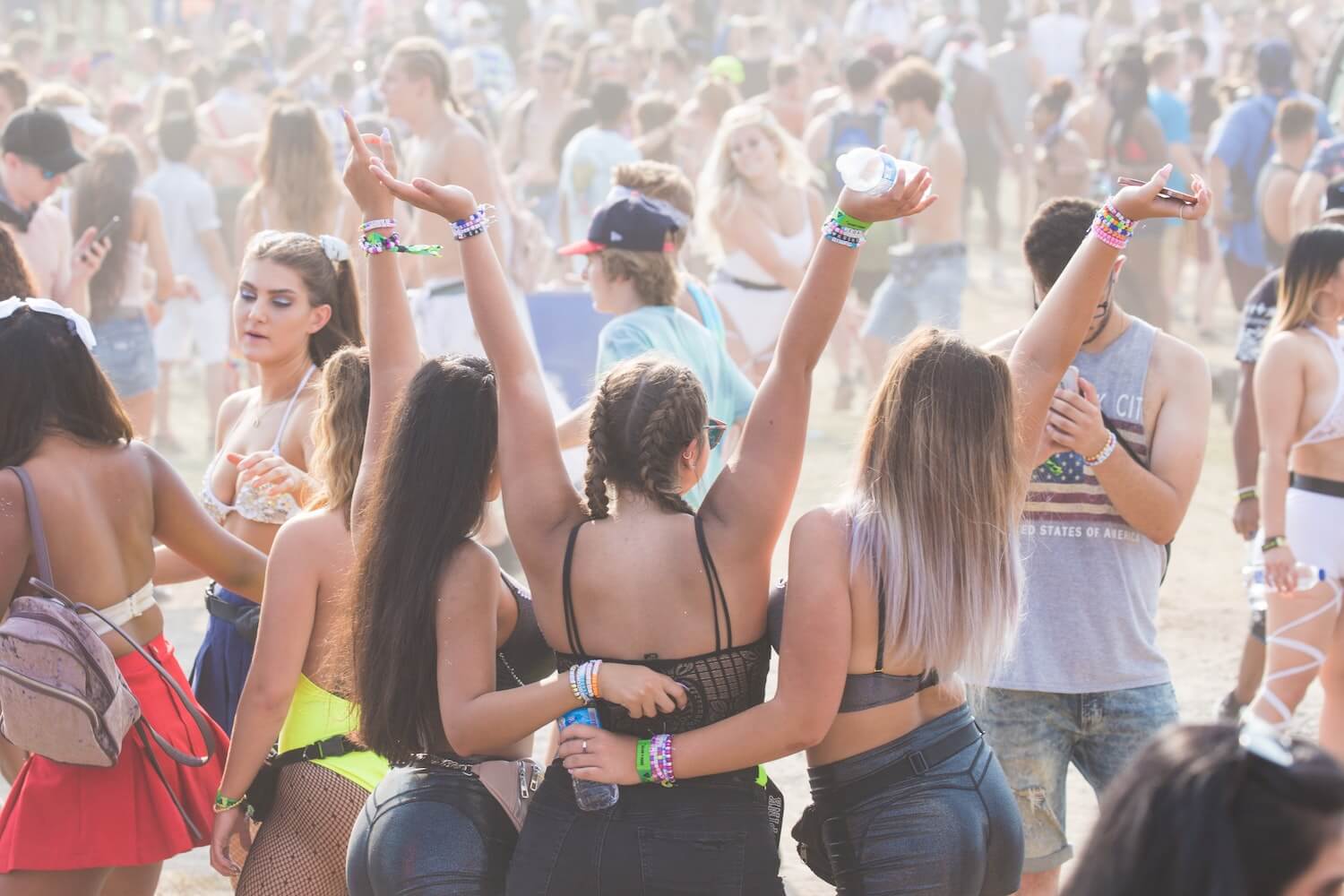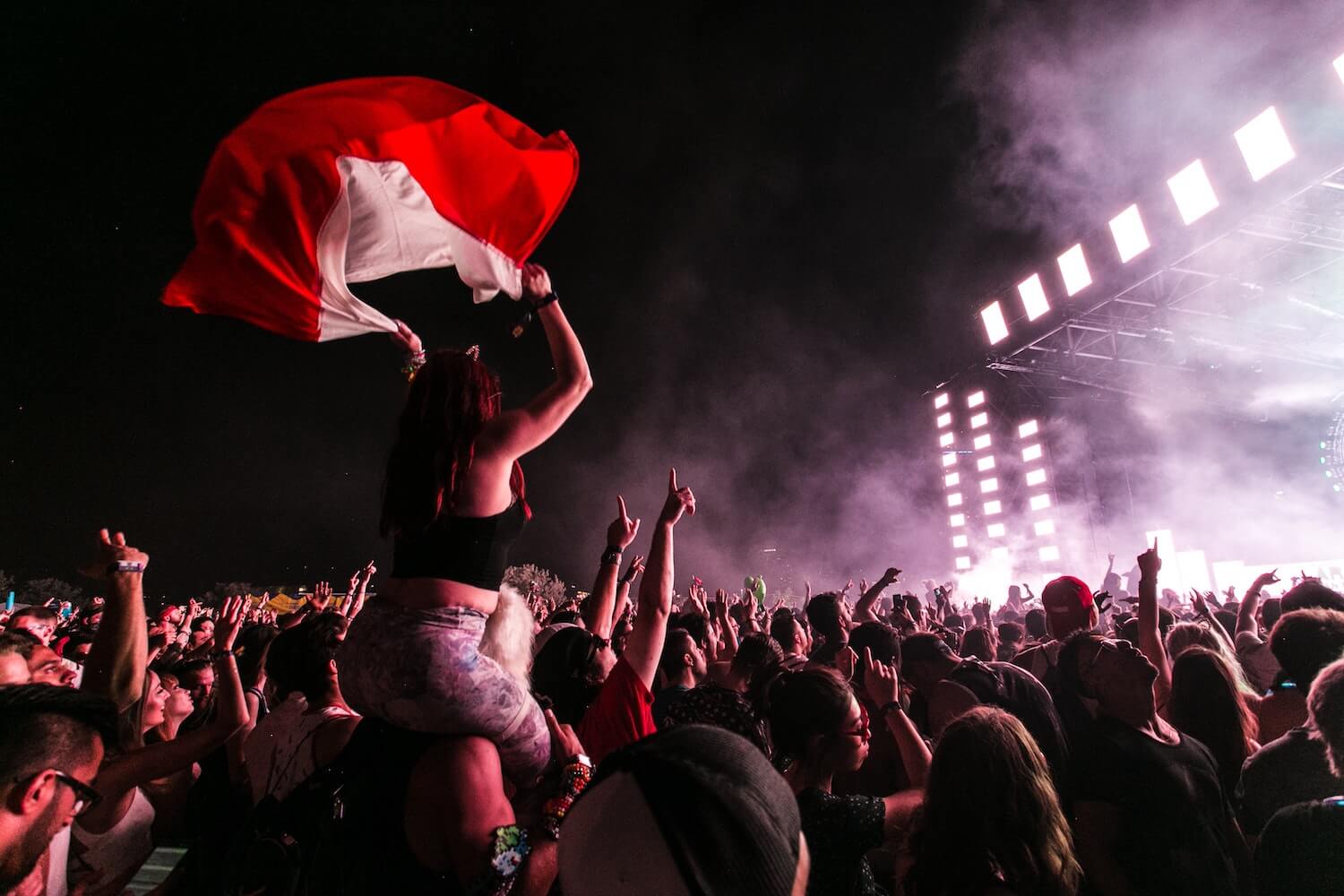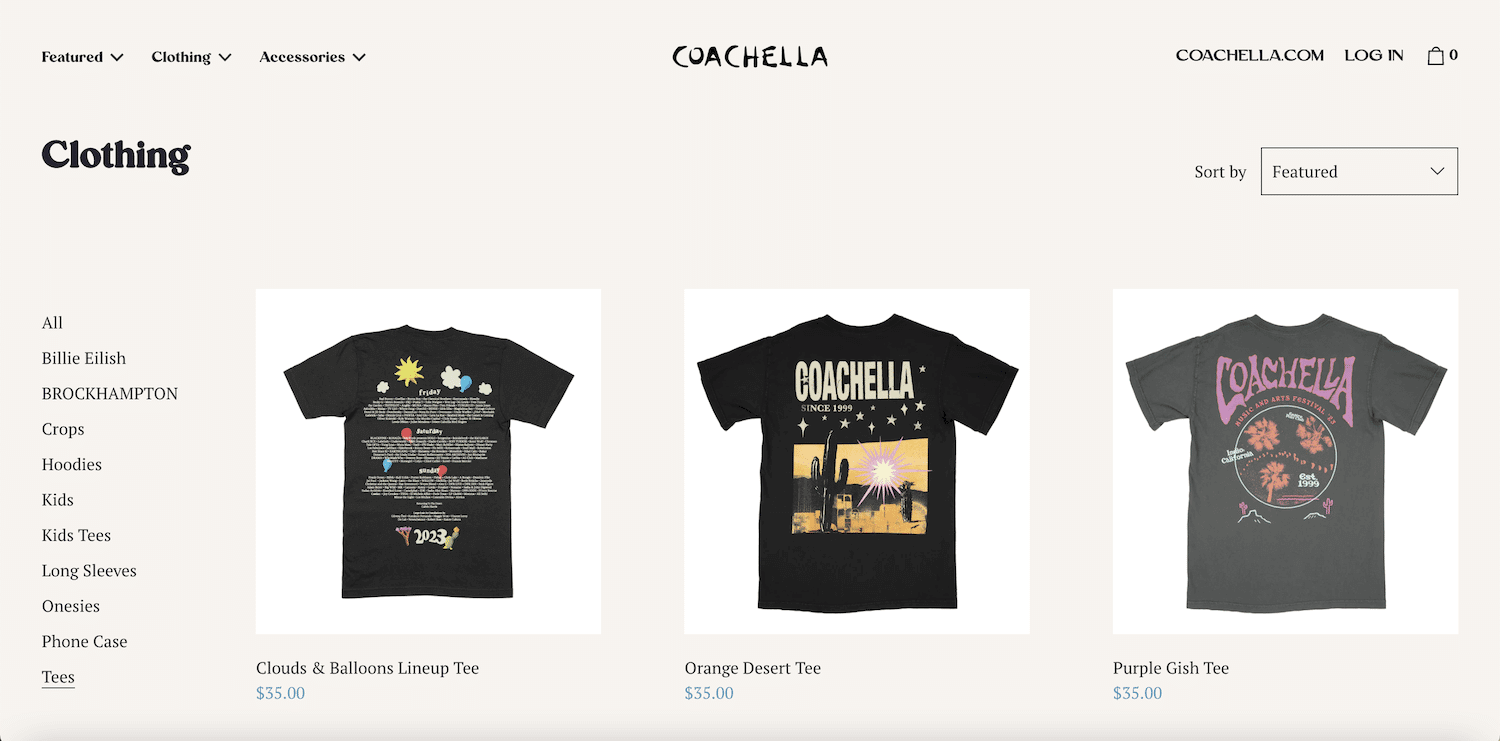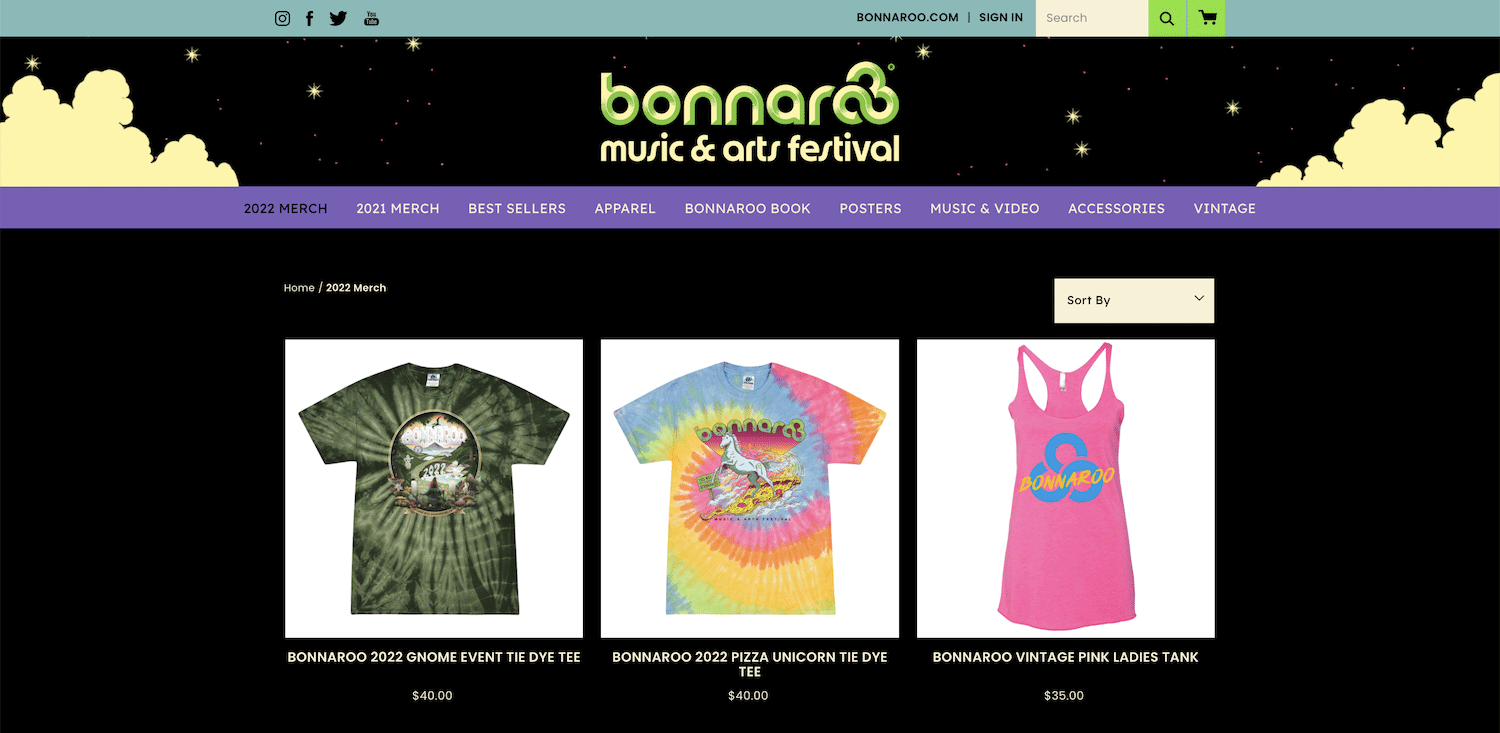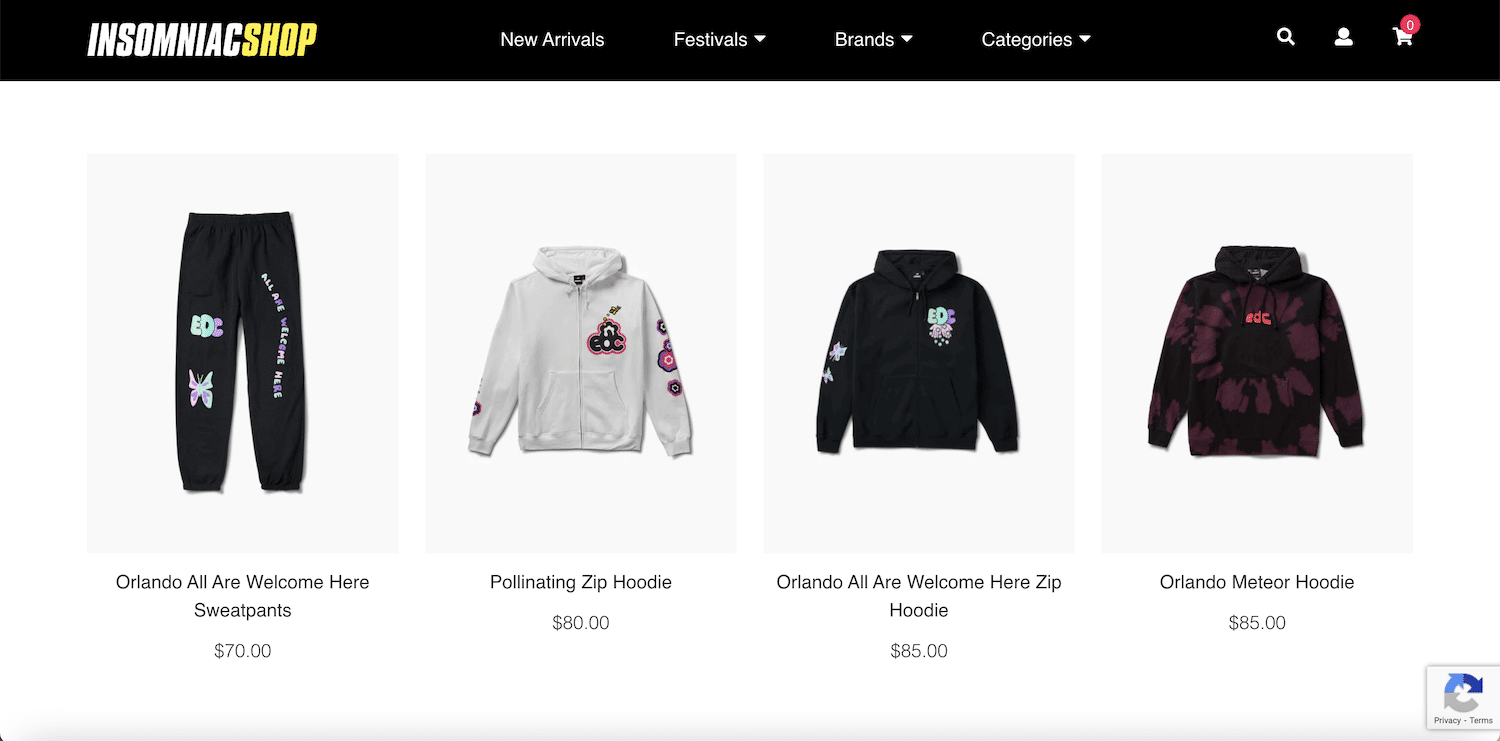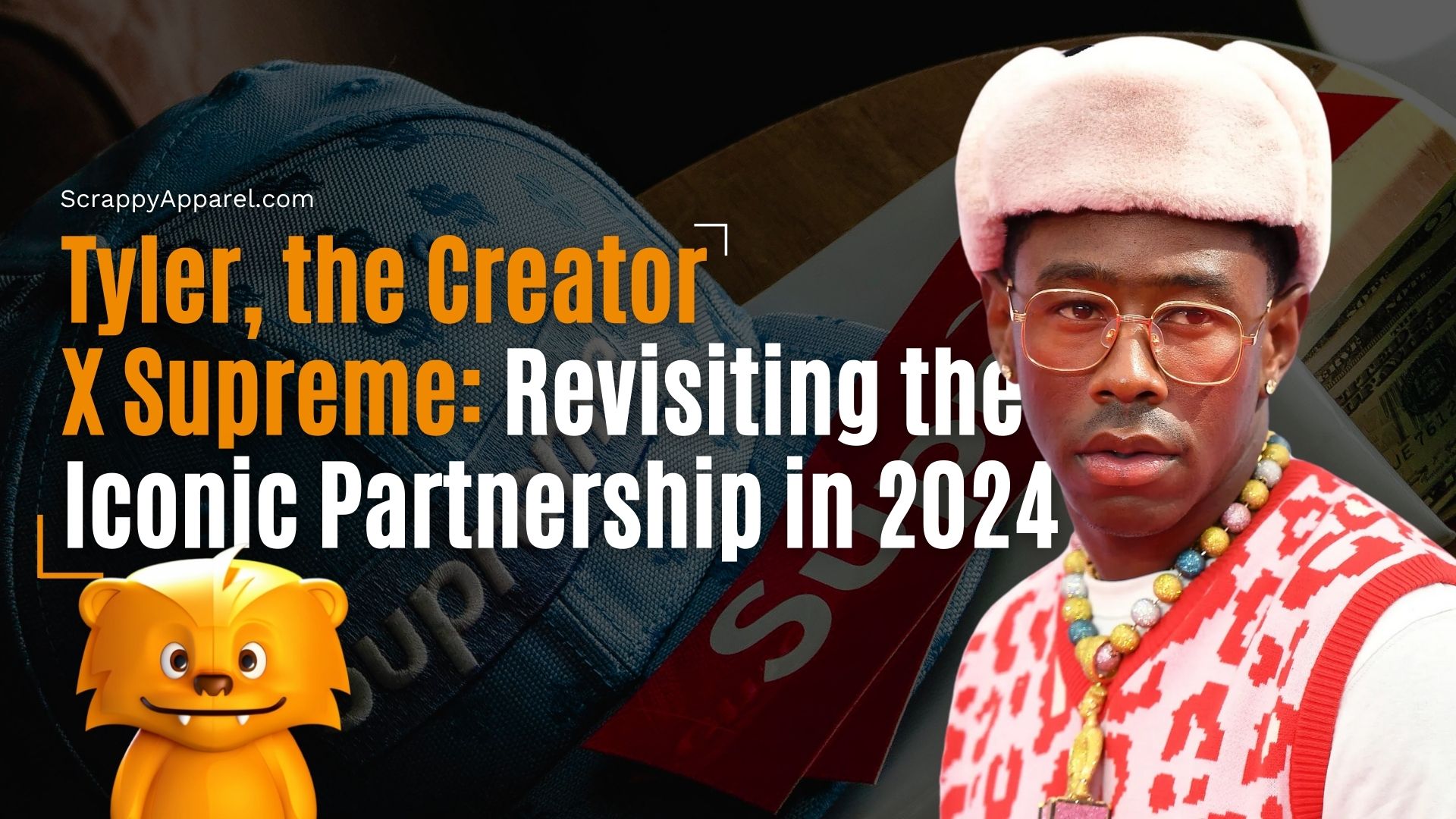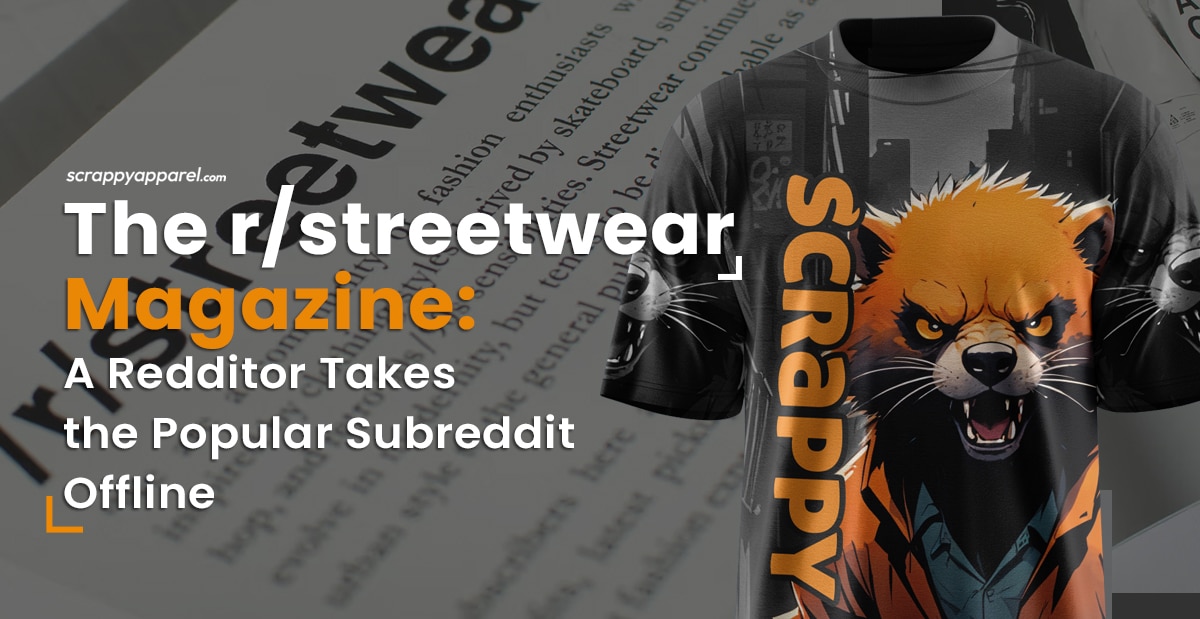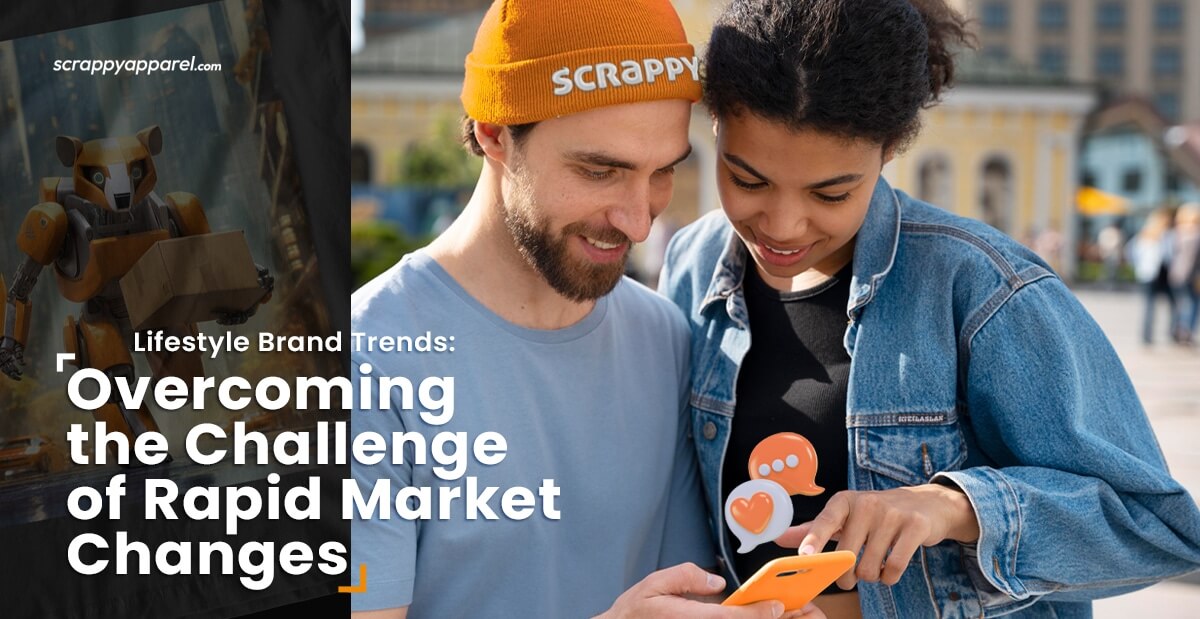How Music Festivals Monetize T-Shirts: From Woodstock to Coachella
If you scroll through social media every day, you might already know we’re in the midst of Coachella season. Have you ever wondered how music festivals generate millions of dollars in revenue beyond ticket sales?
You’ve probably guessed it: T-shirts!
Music festival t-shirts have come a long way throughout the decades. They’ve evolved from simple commemorative souvenirs to highly sought-after fashion items, and they play a key role in each festival’s branding and marketing strategies.
If you’re interested in learning how these events create hype for their merch and turn it into cash, keep reading!
Uncovering the Origin of Festival T-Shirts
We did our research and tried to find out the origin of the very first music festival t-shirt. However, there isn’t really a consensus about where the trend started.
It’s most likely that music festival t-shirts originated from Woodstock in the ‘60s.
Woodstock organizers didn’t anticipate the turnout at the event in 1969. (This was at the beginning of modern music festival culture—think of Woodstock as the grandfather of the Coachella and Ultra we know today.)
Woodstock was held at the height of the Vietnam War. The event allowed people to escape from the horrors of war and join together in the spirit of peace, love, and understanding.
Woodstock was more than just a music festival. It was a celebration of community, of coming together as one.
Long story short, the Woodstock organizers planned for 50,000 people to show up. In reality, there were about 400,000 attendees. You get the picture.
Woodstock decided to produce t-shirts featuring the festival’s logo and sell them to attendees as a way to commemorate the historic event.
The shirts generated significant revenue for the festival organizers. This success prompted other music festivals to follow suit and begin selling their own t-shirts.
Evolving Into Modern-Day Fashion Statements
In the early days of music festivals, t-shirts were primarily sold at the event itself and were often simple designs with the festival logo and lineup on them. However, as music festivals became more popular, t-shirts began to evolve as well.
In the ‘80s and ‘90s, music festival t-shirts took on a new life as fashion items. Grunge fashion and alternative rock music both gained popularity—and t-shirts became a staple for both.
Fast forward to today. With the rise of streetwear and the popularity of vintage clothing, music festival t-shirts have become collectors’ items.
Some people search far and wide for historic shirts from iconic festivals such as Woodstock. There’s a whole market for vintage t-shirts, just like vinyl records.
One of the key drivers of the festival t-shirt industry is the increasing popularity of music festivals themselves. In the early 2000s, music festivals were still a relatively niche market, with a few major events like Coachella and Bonnaroo drawing large crowds but many others struggling to attract attendees.
Today, events like Tomorrowland and Electric Daisy Carnival (EDC) attract 100,000+ attendees every year. That’s a massive target market for merch sales!
Down to Business: How Modern Festivals Monetize T-Shirts
If you’ve been in our world for long enough, you already know there’s a lot that goes into making a t-shirt.
You can’t just slap a design on it and call it a day. Here are a few of the strategies festivals use to increase t-shirt sales:
Branding and Marketing
Every shirt turns the wearer into a walking billboard. It’s a phenomenal branding opportunity for both the event and the performers.
By strategically placing the festival’s name and logo in a prominent area of the t-shirt, such as the front or back, festival organizers can create a strong association between the festival and the garment.
This creates a sense of excitement and anticipation for the festival, encouraging attendees to purchase new t-shirts and continue to promote the event even after it has ended.
Exclusive Design and Limited Availability
Festivals often create unique designs for their t-shirts that are only available during the event. By limiting their availability, organizers can increase demand and create a higher perceived value.
Online Sales
Exclusivity is one strategy, but evergreen availability is another. Festivals can increase revenue by selling t-shirts online both before and after the event. This creates a longer selling season and increases exposure to a broader audience who may not have attended the festival but still want to support the brand.
Package Deals
Festivals frequently offer package deals where the price of a t-shirt is bundled with the price of the ticket or other festival merchandise. This encourages attendees to purchase all of their festival-related items at once, increasing revenue and creating a sense of loyalty to the event.
Celebrity Endorsement
Some festivals collaborate with high-profile celebrities or influencers to promote their t-shirts. This can create a buzz and generate hype around the festival, drawing in more attendees and increasing t-shirt sales.
Freebies and Giveaways
Festivals can give away free t-shirts as part of a larger promotion, such as offering a shirt with the purchase of a VIP ticket or running a social media contest.
Examples of Successful Festival Merchandising Campaigns
In recent years, festivals have shown that creative and unique merchandising campaigns can have a significant impact on revenue and brand recognition.
By offering a variety of products and designs, festivals can attract a wide range of customers who want to support the event and take home a memorable souvenir from the experience.
Let’s look at some examples!
Coachella
Coachella is known for its highly sought-after festival t-shirts, which feature new designs each year. The brand also sells hats and bandanas.
Bonnaroo
Bonnaroo has a wide range of merchandise in its online store, including t-shirt designs from previous events.
Electric Daisy Carnival (EDC)
EDC’s parent company Insomniac has an extensive online store that features t-shirts and other merch from its events.
Interested in Selling T-Shirts to Promote Your Event?
At Scrappy Apparel, we know just how impactful custom-made t-shirts can be for events or festivals. We’ll work with you to bring your one-of-a-kind vision to life and produce shirts that are sure to turn heads in a sea of people.
We help brands of all sizes—from small businesses to enterprises. Scrappy offers turnkey apparel solutions for growing brands and high-volume apparel solutions for established brands that are ready to scale like crazy.
Our experts will help you make all the right decisions for your project based on your order quantity, budget, and goals. All you need to do is prepare your designs and request an estimate from our team. We’ll guide you through the rest!
